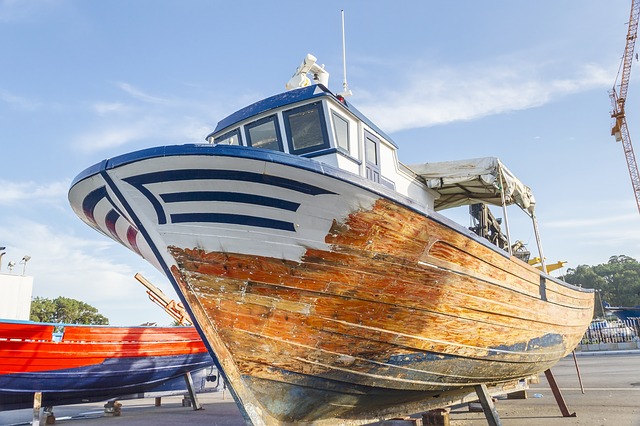
Those familiar with boating have probably dealt with saltwater corrosion at some point.
Boaters and boating enthusiasts know just how important it is to take care of all aspects of your vessel. Those familiar with boating have probably dealt with saltwater corrosion at some point. While most marine components are sealed and shielded, tiny leaks can erode the surface over time. Not only can corrosion spread quickly, but it’s also irreversible, which is why prevention is crucial. A proactive approach can prevent corrosion and keep your essential systems in shape. Keep reading for some tips for protecting your boat from corrosion.
The Importance of Corrosion Prevention
Saltwater corrosion breaks down metallic materials over time, affecting your outboard motor’s ability to function correctly. Luckily, there are many signs to look for to make sure you prevent this. First, pay attention to the paint surface. This is often the first place where signs of corrosion appear. If you notice bubbles or blisters, you should take corrective measures to prevent further damage. However, some corrosion is inevitable due to the basic use of an outboard motor in a marine environment, primarily if you frequently sail in saltwater environments.
Protect the Electrical Circuits
Keeping electrical circuits on your boat dry helps prevent and control corrosion. To do this, wrap the cable connectors in waterproof insulation. Electrical bonding is also recommended. This method involves tying the underwater metals together with wires or bonding strips. This prevents stray currents from causing corrosion.
Inspect and Clean Light Wire Connections
The navigation lights on a boat are a crucial safety feature, especially if you sail in low-light conditions or after sunset. The delicate wires that connect the lights are vulnerable to corrosion, and it does not take much to break the connection and turn off the light. You should inspect the wiring a few times a year. If you notice signs of corrosion, clean it off and replace damaged connections.
Choose the Right Materials
Outboard corrosion can cause severe damage depending on the material of your boat. Some metals are more prone to corrosion than others, so it’s important to consider that when replacing and repairing parts. Stainless steel and plastics are more resistant to corrosion. Certain nickel and titanium alloys are specially designed for corrosion prevention and are ideal materials to ensure your vessel’s optimum protection and longevity.
Sacrificial Anodes
While you can’t completely stop galvanic corrosion, you can control where it appears. The key is to use a metal to draw the galvanic corrosion to itself. This will steer the damage away from essential parts, like the propeller and hull. This metal is known as the sacrificial anode.
There are different options when choosing a sacrificial anode. Zinc is a common choice, but it oxidizes in freshwater, so consider where you go boating when deciding. Aluminum and magnesium are also popular, especially for freshwater applications.
Marine Electric Systems, LLC is a Leader In the Maritime Industry
We here at Marine Electric Systems have over 30 years of industry experience. You can trust our team for reliable service and expert craftsmanship in the Maryland, Baltimore, Annapolis, and Baltimore city areas! We’re highly certified and adhere to all ABYC and NMEA regulations. We specialize in top-notch electrical solutions for recreational, commercial, and government boating clients. Anything from electrical refits, to navigation systems, or boating maintenance. To stay up to date on our services, follow us on Facebook, LinkedIn, Pinterest, Instagram, and YouTube. You can also contact us at 410-263-0807.
